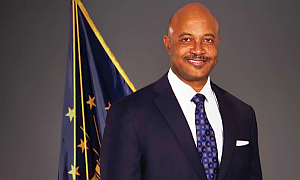 In 2002, Lee Boyd Malvo and a co-conspirator unleashed a wave of terror in the Washington D.C. area — killing 10 people and wounding multiple others in sniper attacks carried out over several weeks. Malvo, who was 17 at the time he perpetrated these senseless killings, was sentenced by a jury in 2004 to life without parole.
In 2002, Lee Boyd Malvo and a co-conspirator unleashed a wave of terror in the Washington D.C. area — killing 10 people and wounding multiple others in sniper attacks carried out over several weeks. Malvo, who was 17 at the time he perpetrated these senseless killings, was sentenced by a jury in 2004 to life without parole.
In 2012, the U.S. Supreme Court ruled that under the Eighth Amendment’s prohibition of cruel and unusual punishment, minors could not be sentenced to mandatory life without parole. In 2016, the court further stated that this rule applied retroactively to all those who had received such sentences before the age of 18.
Malvo has argued, and lower federal courts have agreed, that his sentence is invalid because the jury that sentenced him — more than a decade before the Supreme Court’s decisions in this area — did not specifically say that his crimes reflected “permanent incorrigibility.”
Malvo’s case is now before the U.S. Supreme Court. In support of Virginia’s defense of Malvo’s original sentence, Attorney General Curtis Hill has filed an amicus curiae brief on behalf of Indiana and 14 other states explaining that the Supreme Court’s Eighth Amendment decisions do not require state sentencing bodies to use the magic words “permanent incorrigibility” when sentencing juveniles to life without parole.
The court’s 2012 and 2016 decisions simply require courts to consider minor offenders’ youth when handing down discretionary sentences, Attorney General Hill said.
“States have a strong interest in the finality of criminal judgments,” Attorney General Hill said. “Under our American system of federalism, states also have a strong interest in maintaining sovereignty over criminal matters. The Eighth Amendment clearly does not require a sentencing court to follow a specific procedure or recite certain words in order to justify a discretionary life-without-parole sentence of a minor convicted of homicide.”
Malvo’s older accomplice, John Allen Muhammad, was sentenced to death in 2004 and executed in 2009.











